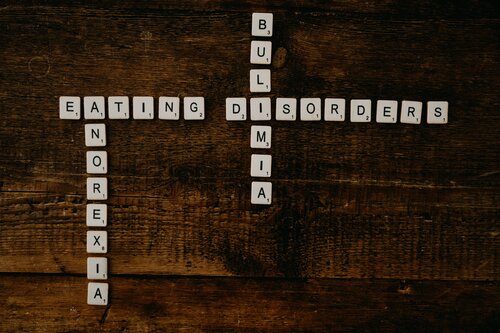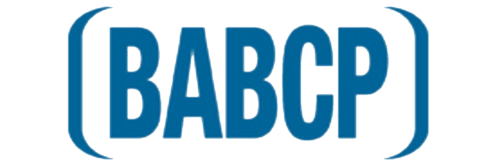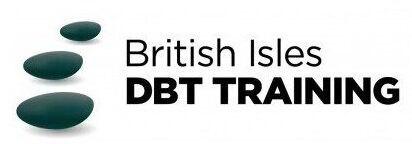
Online DBT
TREATING EATING DISORDERS WITH DBT






Eating disorders are complex mental health conditions that can make life very difficult for those suffering.
Thankfully though, there are treatment options in the form of therapy. Dialectical Behavioural Therapy (DBT) has been proven very effective in helping those with eating disorders, such as overeating, bulimia nervosa and binge eating disorder. overcome their challenges.
Of course, therapy alone won’t be the only aspect of your treatment, but it will benefit you significantly on your pathway to recovery.
According to statistics, around 1.25 million people live with an eating disorder in the U.K. Those with anorexia nervosa are at the highest risk of mortality; that’s why it’s fundamentally important to get treatment for such conditions.
If you’re seeking more information on how DBT can aid you as you face your eating disorder, below, you’ll find the information you need.
DBT is a highly promising treatment option for people suffering from an eating disorder. It can help to slow down and even stop problematic behaviours related to eating and self-image.
Initially, DBT was developed to help those diagnosed with emotionally unstable personality disorder (EUPD). However, in recent years, research has shown it to be effective for other mental health conditions, including eating disorders.
Some people who try to cope with or avoid negative emotions resort to eating disordered behaviours (particularly binge eating and purging). In mental health, these behaviours are often viewed as a means of unhealthy coping behaviours with an aim to manage unwanted emotions. Learning more positive emotional regulation techniques and urge management, as taught in DBT, and understanding more about why you carry out such actions is incredibly valuable.
For example, in dialectics, you try to balance opposite viewpoints and see how they are related. Getting alternative perspectives on problems can help you to realise alternative healthier techniques to deal with eating behaviours and self-harming behaviours.
DBT involves working with your therapist to come to terms with difficult emotions by recognising, accepting, and experiencing them; and learning to manage difficult emotions through acceptance and change.
Not all eating disorder clients are considered appropriate for DBT. This is because when looking at treatment options for mental health, the bigger picture must be considered.
DBT is most effective with disorders of under control, including overeating, binge eating disorder and bulimia nervosa.
Where other treatments have not helped an individual with an eating disorder, DBT is often an effective, evidence based therapy option. The same can be said for those who have repeated emotion regulation behaviours central to the illness they are diagnosed with.
The following DBT skills are used in the therapy we provide to those with eating disorders:
Mindfulness
DBT relies heavily on mindfulness skills. The skills encourage focusing one’s attention and mind in the present moment, without judgment and acknowledging that it is ever-changing.
With overeating, binging or purging, behavioural urges can be managed by being more aware of thoughts, emotions, and bodily sensations that happen during and after such behaviours. Learning to eat mindfully is just one example of this.
Emotion Regulation
Emotional management aims to identify and name emotions, reduce and manage negative emotions, accept and increase resilience to negative feelings of extreme intensity, and enhance positive emotions.
Through these skills, coping strategies other than binge eating are encouraged. Mindfulness encourages accepting all emotions, and avoiding resisting them reduces suffering.
Our clients practise bringing awareness to their emotional experience with radical acceptance during guided meditation, no matter what their emotional state may be in the moment.
Distress Tolerance
It is not always possible to change circumstances or situations. Distress tolerance is called developing the ability to tolerate negative emotions or crises without responding in unhelpful ways, such as binging or purging.
Our DBT programme aims to help you facilitate inner acceptance in various ways, allowing you to slow down and be more present and comfortable with distressing circumstances.
Our complete DBT programme involves the DBT Skills group training element and individual sessions weekly.
Additionally, skills coaching between sessions can be incorporated depending on your personal needs.
Taking the full programme is the most effective and quickest way to make lasting changes in your life.
As a result of the skills we teach and our approach to therapy, you will achieve your individual goals.
Get started with your therapy today by contacting us to learn more about your options.

SPEAK TO OUR TEAM
Start off with a call where you can ask any questions, find out more about what we have on offer, and book in your initial assessment.

BOOK YOUR ASSESSMENT
Use the online booking system below or call our team who will find a time that suits you, for an online hour long assessment via Zoom or Vsee. Same week appointments available.

DBT TREATMENT PACKAGE
Start gaining mastery over your behaviour, thoughts, and emotions with our personalised DBT treatment packages. Ready to start the process?
Want to find out more about DBT, or are you ready to book in an assessment?
We are here to help, so send us your details via the form attached, and we will get back to you with the information you need.
Want to read about DBT in the meantime, then check out our DBT brochure below.
Want to get straight in contact? Call us on our number below or send us an email and a member of our team will get straight back to you.
Phone
0203 432 5909ADDRESS
Suite 788
Unit 3A
34-35 Hatton Garden
Holborn
London
EC1N 8DX
UK